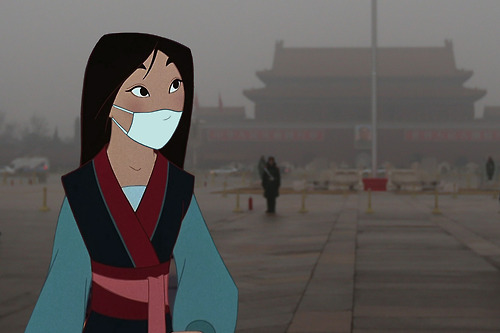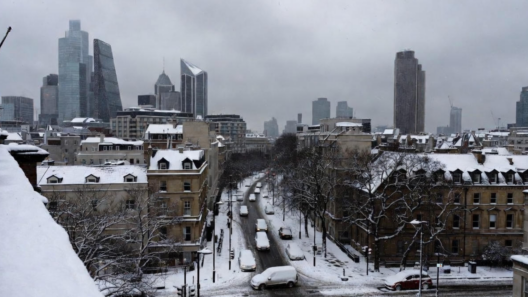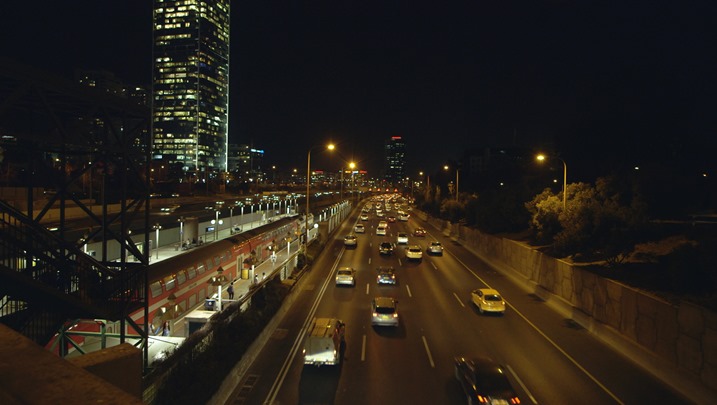Tell us about the project?
Speaking with Joshua Baker
It’s a cinematic, independent feature documentary called The Process that presents a new perspective on the long-running Israeli-Palestinian conflict. The film was screened at the renowned Frontline Club on the 19th of September, having my work show there has been one of my dreams since I first became interested in journalism.
The film is not about the politics; it’s the human tale of the political story – looking at life on the ground for three people living in a reality that is framed against two decades of failed peace negotiations. A cycle has emerged from the process towards peace, talks fail, followed by violence, followed by new negotiations, that are also likely to fail.
All the characters are under 30 and they’ve only ever really known a time when there’s been either conflict or a process towards peace, supposed with actual peace. Our first is a young Israeli girl, she grew up in a settlement but as soon as she was old enough, left the countryside for the bright lights of Tel Aviv. In that way she’s unexpected and refreshing to watch because she feels really familiar, she’s just a Twitter obsessive twenty something similar to you or me. Second we have Abu Nasser who’s a precocious 17 year old with lofty ambitions of becoming a horse breeder; he’s all leather jacket, aviators and cigarettes and has a different take on both the conflict and Israel. Finally, we follow a young boy of 7 who’s living at the sharp end of the conflict.
It’s interesting because so often people are confused as to why on earth I would make my first film on this conflict, it’s been such a constant in the media and in our lives, always bubbling away in the background, perpetually unresolved. The level of coverage has almost created an indifferent attitude towards what seems like a recurring rhetoric on a topic that is too complex or convoluted to understand… but in honesty, it isn’t. I have been researching and working on and off in the region for a couple of years now and what I have seen on TV and in the papers often looks very different to reality on the ground. So I set myself the challenge of creating film that would be visually beautiful, new and unexpected.
It was also very important to me, that what we created was balanced, journalistically speaking, people are quickly bored by finger pointing and shock, so my approach and my sensibility is to stand back and observe and not push an agenda. I’m not campaigning, but I am definitely trying to get people to take a second look at something they to often dismiss as boring, confusing or too much of a hot patato .
What is unique about this project?
Speaking with Joshua Baker
Apart from the fact it has been driven by a team who are all under 26, self financed through Kickstarter and shot in 3 different countries inside 6 weeks, I think there are two factors that make The Process unique.
First, it’s a story from both sides of the wall, that debunks political rhetoric and develops around 3 captivating characters, our Israeli settler Lola. She actually travels to a Palestinian village for the first time to talk with a Palestinian mother of four who has seen many of her family killed while living under occupation. The discussion they have is both insightful and incredibly rare.
The second is that it is unashamedly cinematic, my grader (colourist) at TJT Film based in Shoreditch very kindly said it was strongest documentary, visually-speaking, he has ever worked on. That meant a lot to me. I was determined the film would step away from the lower quality image often found in docs and aspire to use beauty as another way of telling the story, after all, to quote the photographer Richard Mosse: “Beauty is the sharpest tool in the box”.
We know that the most of the creative process has happened in Shoreditch, why do you think Shoreditch is attractive to film industry?
Speaking with Producer Kadri Mahmoud
Shoreditch and the East London area in general have an atmosphere that allows creative people to function to their best ability. Initially the property market and sheer amount of space of the area attracted a demographic like us that appreciated warehouse use and gallery spaces, meaning the overall temperament of the borough began to change. This is where we find ourselves today, in an area that is controlled and dictated by creative people, be it the encouraging use of street art to pop up shops, cinemas, galleries and music venues. No other place in London can provide so much for the creative industry. Soho and others can compete, but to a very different standard. Here you have a residential element that keeps the atmosphere modest and calm but busy enough to keep things exciting. I think it applies to filmmaking because all creatives enjoy being surrounded by inspiring work. The democratisation of everything art based, be it film or music means the range of work is only increasing and the talent is never ending. I am personally new to the area, moving to Kingsland Road only recently yet the energy is reminiscent of Los Angeles, in which you can actively see the creative world around you. It has been a pleasure so far and I don’t see myself moving anytime soon.
Who/what are your favorite Filmmakers/Artists/Businesses in the area?
Speaking with Producer Amy Basil
Well, the film had it’s world premiere at the beautiful Rio Cinema in Dalston in June.
Not only is the Rio an amazing independent cinema which made it a pleasure to showcase the film, but to have the first screening somewhere familiar, to be at ‘home’ was such a treat. Our second screening was at the Red Gallery which is a great mixed media space on Rivington street, so really quintessential East London or old school Shoreditch. Our score came from Misha Hering at Holy Mountain Studios in London Fields. His studio is in the infamous hive that is Netil House and is proving to be an essential stop for London’s up and coming recording artists. Misha built the score entirely from vintage analogue synths, and has completely blown the minds of everyone involved with what he’s been able to achieve. Netil House is an interesting place, our sound was mixed in the same building at SoundNode by Daniel Jaramillo so it was almost like our own independent cooperative post house. We also graded with colourist Toby Tomkins at the ArtHaus in Hackney and had an amazing celebratory dinner at Lardo next door, which is probably up there with the best places to eat in the area.
What are your future plans?
Speaking with Joshua Baker
The film had it’s premiere at the East End Film Festival in June which was just the beginning of its journey in the public realm. We are screening this week at the Frontline Club and will continue to roll it out on the festival circuit. My own work covers all parts of journalism. I work on the foreign desk at The Times regularly, which definitely keeps me on my toes and up to speed with current affairs. This film came about as a result of research, contacts and sheer interest in a topic – so it’s really crucial for me to be active in foreign news. Being so integrated means I’m constantly discovering new stories. For example, I was interviewed live on national TV in Lebanon – the country’s equivalent to Newsnight – speaking about the film and the conflict. Whilst I was in Lebanon I visited the a refugee camp on the Syrian border and was lucky enough to one of the only western journalists to get into this particular camp at that time. I recorded audio interviews and photographed the people in the camp, and I’m now developing as multimedia piece with the New York Times.
Social links:
Twitter: @theprocessdoc
Facebook: https://www.facebook.com/theprocessdocumentary
Website: http://www.theprocessfilm.com








